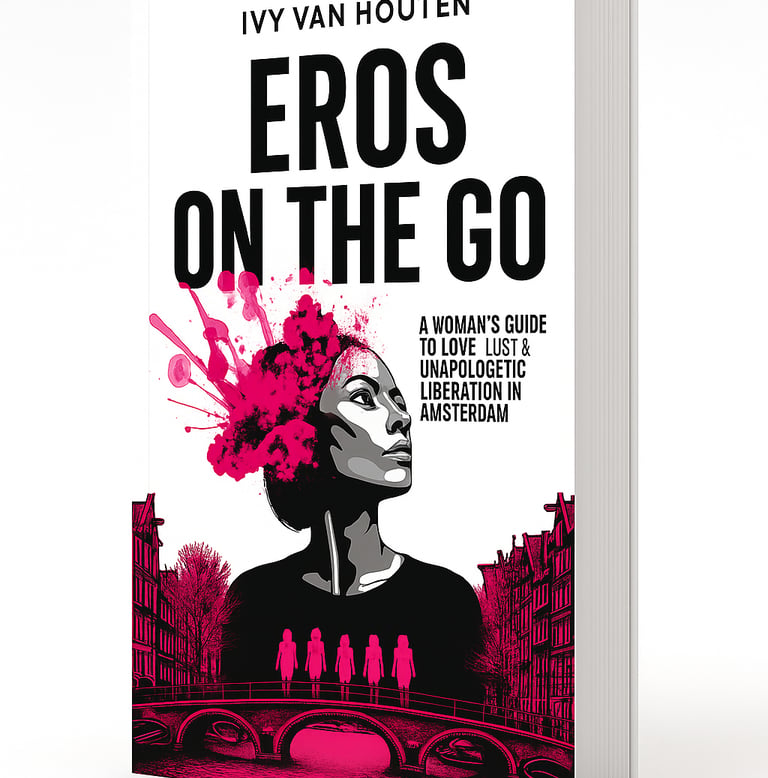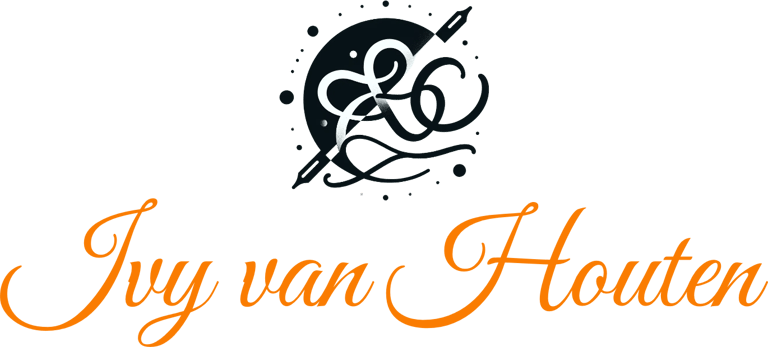Beyond Borders: How Women from Non-Western Cultures Are Finding Freedom in Amsterdam's Most Controversial Neighborhood
A guide to navigating cultural expectations, personal curiosity, and the courage to explore on your own terms
Listen gorgeous, after my last article about reclaiming the Red Light District, something beautiful happened. My inbox exploded with messages from women around the world—but especially from women whose cultural backgrounds made my "just be curious" advice feel a lot more complicated than I initially realized.
Priya from Mumbai wrote: "Ivy, your article spoke to me, but you don't understand. In my culture, even being curious about these things could bring shame to my entire family."
Fatima from Cairo shared: "I want to explore, but I was raised to believe that a woman's worth is tied to her purity. How do I reconcile that with this desire for freedom?"
Mei from Beijing asked: "What if I don't even know what I'm looking for? We don't talk about these things where I come from."
These messages broke my heart and opened my eyes at the same time. Here I was, talking about female empowerment and sexual agency like it was a universal experience, when the reality is that for many women, the very act of curiosity can feel like a betrayal of everything they were taught to value.
So this article is for you, beautiful soul—the woman who feels torn between curiosity and cultural expectations, between personal freedom and family honor, between who you were raised to be and who you might want to become.
The Weight of Cultural Expectations
Let me start by acknowledging something I didn't fully address in my previous article: cultural conditioning runs deep. When you've been raised in a society where female sexuality is heavily regulated, where modesty is considered a virtue, where even discussing these topics is taboo—the idea of walking through the Red Light District can feel like crossing a line you can never uncross.
I get it now in a way I didn't before.
Three months ago, I met Aisha at a café in the Jordaan. She was a 28-year-old software engineer from Pakistan, in Amsterdam for a tech conference. Over coffee, she told me she'd been reading my articles about strategic dating and female empowerment, but felt like they were written for a different kind of woman.
"You talk about owning your sexuality like it's simple," she said. "But where I come from, even admitting you have sexuality can destroy your reputation, your marriage prospects, your relationship with your family. It's not just about personal choice—it's about survival."
That conversation changed how I think about empowerment entirely.
The Courage to Question
Here's what I've learned from countless conversations with women from conservative cultures: the bravest thing you can do isn't necessarily to rebel against everything you were taught. Sometimes, the bravest thing is simply to ask yourself: What do I actually believe, versus what I was told to believe?
Aisha and I spent three hours in that café, and by the end of our conversation, she'd made a decision that surprised both of us. She wanted to visit the Red Light District—not to participate in anything, not to abandon her values, but to see for herself what all the controversy was about.
"I realized," she told me, "that I've been making judgments about something I've never actually experienced. Maybe I'll walk through and feel disgusted. Maybe I'll feel curious. Maybe I'll feel nothing at all. But at least I'll know what I think, not what I'm supposed to think."
That evening, we walked through De Wallen together. And what happened next taught me more about courage than any self-help book ever could.
The Reality of Cultural Conflict
I'm not going to lie to you and pretend that exploring spaces like the Red Light District is without consequences for women from conservative cultures. The internal conflict is real. The fear of judgment is valid. The concern about betraying your values is legitimate.
But here's what I've observed from the dozens of women I've now guided through this experience: the conflict isn't usually between your true values and your curiosity. The conflict is between the values that were imposed on you and the values you're discovering for yourself.
Aisha spent our entire walk asking questions. Not about sex work or the business of the district, but about choice, agency, and what it means to be a woman in control of her own decisions.
"In my country," she said, watching a group of female tourists laughing and taking photos, "these women would be considered shameless. But they look... happy. Free. I've never seen women move through the world with such confidence."
She wasn't talking about the sex workers—she was talking about the tourists. Women who felt comfortable exploring, questioning, being curious without apologizing for it.
The Questions That Keep You Up at Night
After that evening with Aisha, I started paying more attention to the specific concerns women from non-Western cultures have about exploring spaces like De Wallen. The questions are different, deeper, more complex than I initially understood.
"Will this change who I am fundamentally?"
This is the big one. The fear that exposure to different values will somehow corrupt or transform you in ways you can't control.
Here's what I've learned: experiencing something doesn't mean adopting it. You can walk through the Red Light District and still value modesty. You can have conversations about sexuality and still choose to keep your own private. You can witness other women's choices without making the same choices yourself.
Exploration doesn't require transformation—it just requires openness.
"What if my family finds out?"
This is a practical concern that can't be dismissed with platitudes about "living your truth." For many women, family disapproval isn't just emotionally painful—it can have real consequences for their safety, financial security, and social standing.
My advice? You don't have to tell anyone about this experience unless you choose to. This is your private journey of self-discovery. What you do with what you learn is entirely up to you.
"Am I betraying my religion/culture/values?"
This is where things get nuanced. Only you can answer this question, because only you know what your true values are versus what values were imposed on you by others.
I've met Muslim women who found their faith deepened by understanding the complexity of human sexuality.
I've met Hindu women who connected their exploration to ancient traditions of sacred sexuality. I've met Christian women who felt that understanding their own desires made them more compassionate toward others.
I've also met women who explored and decided it wasn't for them—and that decision was just as valid and empowering.
The Sisterhood You Didn't Expect
One of the most beautiful things I've witnessed is the connections that form between women from different cultural backgrounds in spaces like the Red Light District.
Last month, I organized an informal meetup for women who wanted to explore De Wallen together. The group included Priya from India, Sarah from Egypt, Mei from China, Elena from Russia, and Maria from Brazil. Five women from five different cultures, all navigating the tension between curiosity and conditioning.
What happened that evening was magical.
Instead of focusing on the red-lit windows or the sex shops, they spent most of the time talking to each other. Comparing their cultural experiences. Sharing their fears and curiosities. Realizing that despite coming from completely different backgrounds, they were all grappling with similar questions about female agency, personal freedom, and the right to be curious.
"I thought I was the only one who felt this conflict," Priya told me later. "Meeting other women who understood the weight of cultural expectations but still chose to explore— it made me feel less alone."
By the end of the evening, they'd exchanged contact information and made plans to meet again. Not to explore more of the Red Light District, but to continue the conversations they'd started about identity, culture, and personal choice.
The Gentle Approach to Exploration
If you're feeling drawn to explore but worried about overstepping your comfort zone, here's what I recommend:
Start with Questions, Not Actions
Before you even think about visiting the Red Light District, spend some time with yourself. What are you curious about? What are you hoping to understand? What fears are you carrying, and which ones are yours versus ones that belong to others?
Choose Your Companions Carefully
If possible, explore with other women who understand your cultural context. There's something powerful about having witnesses to your courage—people who understand the significance of what you're doing.
Set Your Own Boundaries
You don't have to see everything, do everything, or experience everything to benefit from exploration. Maybe you just walk through the main streets. Maybe you only visit the museums. Maybe you just sit in a café and people-watch. Your exploration, your rules.
Honor Your Reactions
If you feel uncomfortable, that's valid. If you feel curious, that's valid too. If you feel conflicted, confused, or overwhelmed—all of that is normal and okay. You don't have to have a clear reaction or a neat conclusion.
The Museum That Changes Everything
If you do decide to explore, I highly recommend starting with the Museum of Prostitution (Red Light Secrets). Not because it's shocking or provocative, but because it's educational and humanizing.
The museum presents sex work as what it actually is: work performed by real women making economic choices about their own bodies. It strips away both the glamorization and the stigmatization, presenting a complex reality that most cultures prefer to ignore.
Mei, the software engineer from Beijing, told me that visiting the museum helped her understand the difference between exploitation and agency. "In my country, we're taught that any woman involved in sex work is a victim," she said. "But some of these women are entrepreneurs, business owners, women making strategic choices about their careers. It challenged everything I thought I knew."
The Conversations That Matter
What I've learned from guiding women from conservative cultures through Amsterdam is that the most transformative part isn't what they see—it's what they discuss afterward.
These women often have the most thoughtful, nuanced conversations about sexuality, agency, and cultural conditioning that I've ever witnessed. They're not approaching these topics casually or carelessly. They're approaching them with the weight of understanding what's at stake.
Fatima, the woman from Cairo I mentioned earlier, spent our entire post-exploration coffee conversation talking about the difference between shame and modesty. "I realized I can value modesty without accepting shame," she said. "They're not the same thing, even though I was taught they were."
The Return Home
One of the questions I get asked most frequently is: "How do I integrate this experience when I go back to my conservative culture?"
The answer is: carefully and on your own terms.
Some women return home with a deeper appreciation for their cultural values, having seen alternatives and chosen to embrace what they were raised with. Others return with a quiet confidence that comes from knowing they've explored and made their own choices. Still others return with plans to gradually create more space for personal freedom in their lives.
There's no right way to integrate these experiences. The goal isn't to become a different person—it's to become more authentically yourself.
The Ripple Effect
What I find most inspiring about women from conservative cultures who choose to explore is the ripple effect they create. They return home with a different energy—more confident, more self-aware, more comfortable with complexity and nuance.
Aisha, the software engineer from Pakistan, told me six months later that her Amsterdam experience had changed how she approached everything from her career to her relationships. "I learned that I can question things without rejecting them," she said. "I can be curious without being rebellious. I can honor my culture while still honoring myself."
She's now mentoring other young women in her field, encouraging them to travel, explore, and think critically about the world around them. Not to abandon their values, but to make sure their values are truly their own.
The Permission You Don't Need (But Deserve)
Here's what I want you to understand: you don't need anyone's permission to be curious about the world. You don't need your family's approval, your culture's blessing, or your religion's endorsement to explore, question, and think for yourself.
But you do deserve support, understanding, and community as you navigate these complex questions.
If you're feeling torn between curiosity and cultural expectations, know that you're not alone. Women all over the world are grappling with these same tensions, finding ways to honor their heritage while still claiming their right to personal growth and exploration.
The Strategic Approach for Cultural Navigation
If you decide to explore Amsterdam's Red Light District while carrying the weight of cultural expectations, here's my strategic advice:
Before You Go
Clarify your intentions. Are you exploring to rebel, to understand, to challenge yourself, or to satisfy curiosity? Your intention will guide your experience.
Identify your non-negotiables. What lines won't you cross? What values are truly yours versus imposed by others? Knowing your boundaries helps you explore with confidence.
Find your support system. Whether it's other women from similar backgrounds or allies who understand cultural complexity, don't navigate this alone.
During Your Exploration
Stay present with your reactions. Notice what you feel without judging those feelings. Discomfort doesn't mean you're doing something wrong—it might mean you're growing.
Ask questions instead of making judgments. Approach everything with curiosity rather than predetermined conclusions.
Honor your pace. You don't have to see everything or understand everything in one visit. Exploration is a process, not an event.
After Your Experience
Take time to process. Don't rush to conclusions or feel pressured to have immediate clarity about what the experience meant.
Choose your sharing carefully. You don't owe anyone an explanation of your experience, but sharing with trusted friends can help you process.
Integrate gradually. Let the insights from your exploration inform your choices slowly and naturally, rather than forcing dramatic changes.
The Bigger Picture: Cultural Evolution
What I've witnessed through these experiences is something profound: culture isn't static. It evolves through the courage of individuals who are willing to question, explore, and think for themselves while still honoring what's valuable in their heritage.
Every woman who chooses curiosity over fear, exploration over assumption, personal truth over imposed expectations contributes to that evolution. Not by rejecting her culture, but by adding her voice to the ongoing conversation about what it means to be a woman in the modern world.
Your Next Chapter
So, beautiful soul, what's it going to be? Are you going to let fear of judgment keep you from exploring something you're genuinely curious about? Or are you going to trust yourself enough to investigate, question, and form your own opinions?
The Red Light District will be there whenever you're ready for it. Amsterdam will welcome you with open arms and zero judgment. And there's a growing community of women who understand exactly what you're navigating—the tension between heritage and growth, between cultural loyalty and personal truth.
Your curiosity is valid. Your questions are important. Your right to explore and think for yourself is fundamental to who you are as a human being.
The only person who can decide what's right for you is you. But you can't make that decision without information, without experience, without the courage to look beyond what you've been told and see what you actually think.
Whatever you decide, know that you're not alone in this journey. There are women all over the world who are navigating these same complex waters, finding ways to honor their past while creating their future.
And that, gorgeous, is the most beautiful kind of courage there is.
Ready to explore the intersection of culture, curiosity, and personal freedom? Your journey starts with a single question: What do I actually believe, versus what I was told to believe? The answer might surprise you.
Coming Soon:
Eros on the Go-A Woman's Guide to Love, Lust & Unapologetic Liberation in Amsterdam
I believe true empowerment means owning every part of your journey—including your desires. My next playbook, Eros on the Go, is a radical, sex-positive guide to reclaiming Amsterdam's infamous Red Light District, not as a playground for men, but as a space for women to explore power, sensuality, and freedom on their own terms.


Ready to rewrite the rules?
Get field-tested strategies. The real conversation happens in my private newsletter.
© 2025. VOID AND SIGN COMMUNICATIONS All rights reserved.


Explore
Connect
Follow Ivy for daily advice
